The last giant joss stick makers of Singapore are burning to the end
- Albert Tay’s business may well be the last of its kind in the Lion City
- His craft has been handed down through the generations, but young Singaporeans have no interest in it – and Covid-19 could be the killer blow
Albert Tay’s business of making giant joss sticks by hand is a vanishing trade. Photo: Tay Guan Heng
Bent over a wooden table, Albert Tay, 61, picks up a plastic knife – the kind that comes with a McDonald’s takeaway order – and gets to work.
His hands run down a winding log of reddish-brown clay that is shaped like a dragon without features. Using the knife, he deftly carves out small, protruding scales, one after another, until they eventually form a dense pattern across the dragon’s body, which dresses up a 2-metre-long joss stick.
With more twists and flicks of the wrist, he works on the dragon’s head, sculpting its eyes, nose and beard. The dragon comes to life, almost.
Tay is in the business of making giant joss sticks by hand – one that has been passed down from his grandfather, who moved from Guangdong, China, to
in the 1930s, to his father, and now him and his brothers.
But in a modern city, it is a vanishing trade. Tay believes that his shop, Tay Guan Heng, could well be the last of its kind in Singapore. A competitor shut down in January.
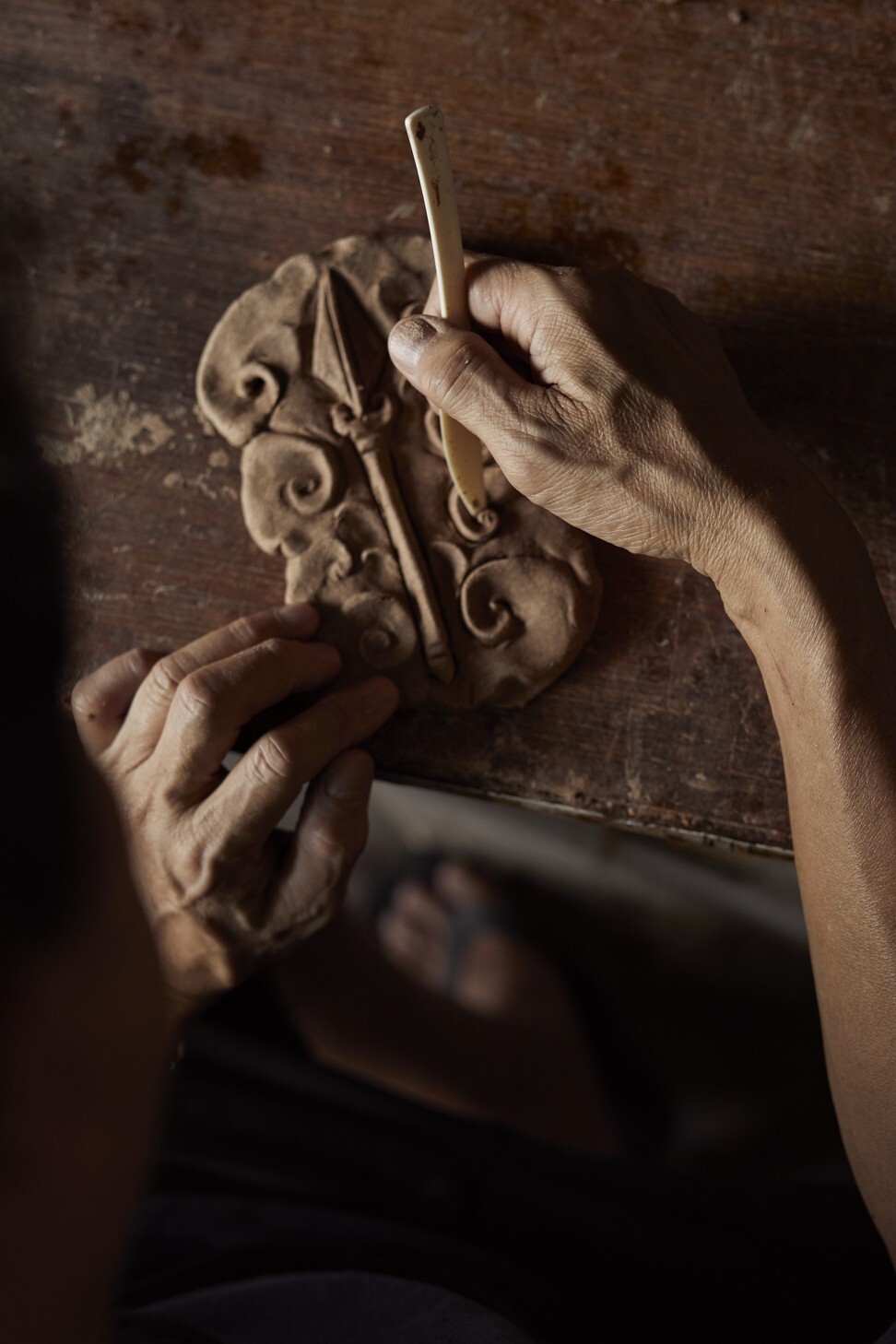
Tay’s business of making giant joss sticks by hand is a vanishing trade. Photo: Tay Guan Heng
“This is not a way for the kids nowadays to make a living. You cannot survive,” he says, adding that neither his nieces, nephews, nor even his own children are interested in taking over the business.
“They are better educated, and they are doing very well. So we’re happy for them. This traditional work is for us old people. This cottage-industry kind of thing, especially our trade, will not last long. It’s a different period now, a different time.”
FAMILY LEGACY
Tucked away in the industrial part of suburban central Ang Mo Kio, and surrounded mostly by automobile repair shops, Tay Guan Heng’s small and unassuming workshop belies its rich, 80-year history.
In the 1930s, at a time when Chinese immigrants came to Singapore, mostly in hopes of escaping poverty and starting life anew in a different country, Tay’s grandfather and his family landed here.
He brought with him a skill he had picked up back in Guangdong – making handcrafted joss sticks – and sold them for a living. Joss sticks are a type of incense fundamental to Chinese rituals, often burned as a form of offering and worship. The giant ones are typically used during the birthday celebrations of Chinese gods and the Hungry Ghost Festival.
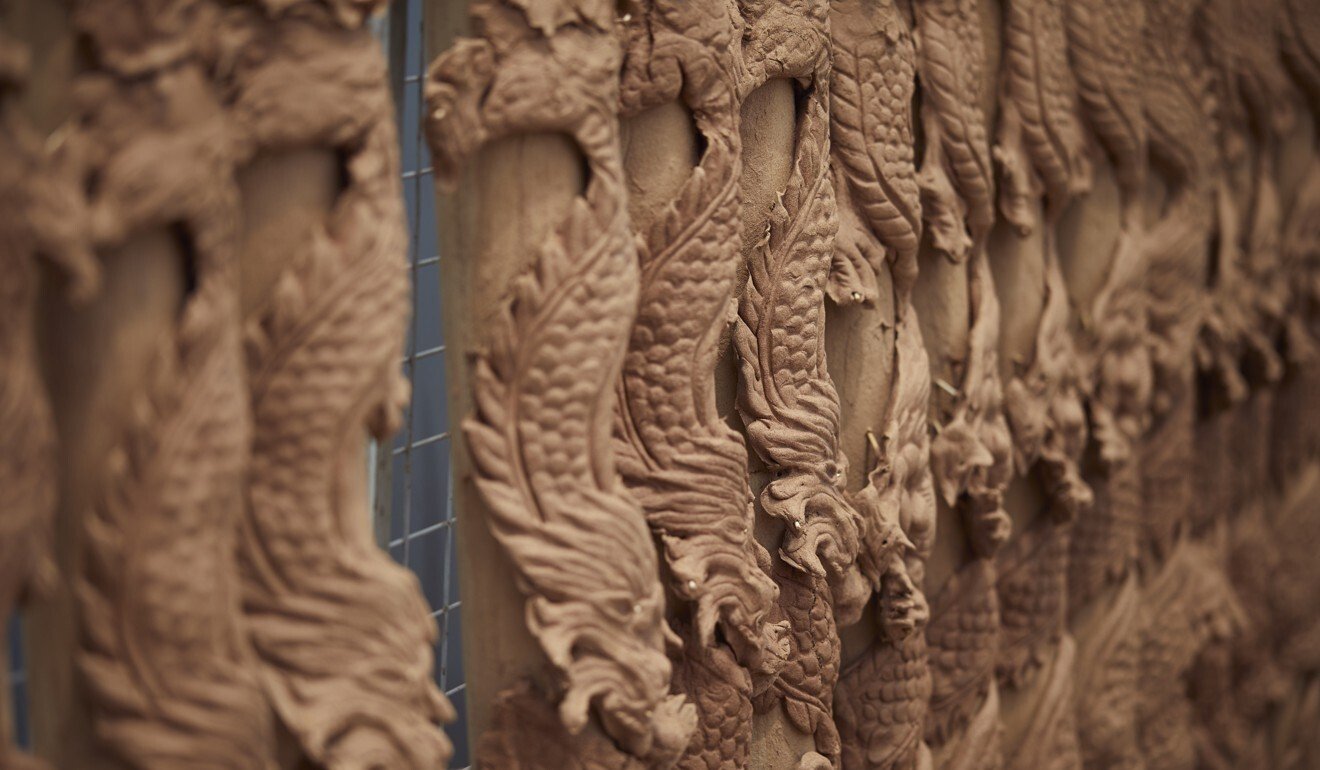
Tay’s hand-carved dragons decorate 2-metre-tall joss sticks. Photo: Tay Guan Heng
Eventually, his son Tay Yong Poh, Tay’s father, took over and set up his own shop in Little India, an ethnic enclave at the heart of Singapore.
The ingredients for the handcrafted joss sticks are simple: a mixture of cinnamon tree wood powder and water, which come together to become pliable, dough-like clay. Tay Guan Heng imports its powder from
.
This clay is rolled out and shaped into giant joss sticks, which are adorned with anything from dragons to deities to Chinese characters. They are then dried in the sun for two to four days, before being painted with bright colours.
The standard 2-metre joss sticks, which are decorated with a three-dimensional dragon each, are sold in sets of three for S$150 (US$105). Customised ones can cost more, depending on the designs.
In its heyday during the 1990s, Tay Guan Heng was making joss sticks as tall as 5 metres – massive, towering structures that required four to five people to set up.
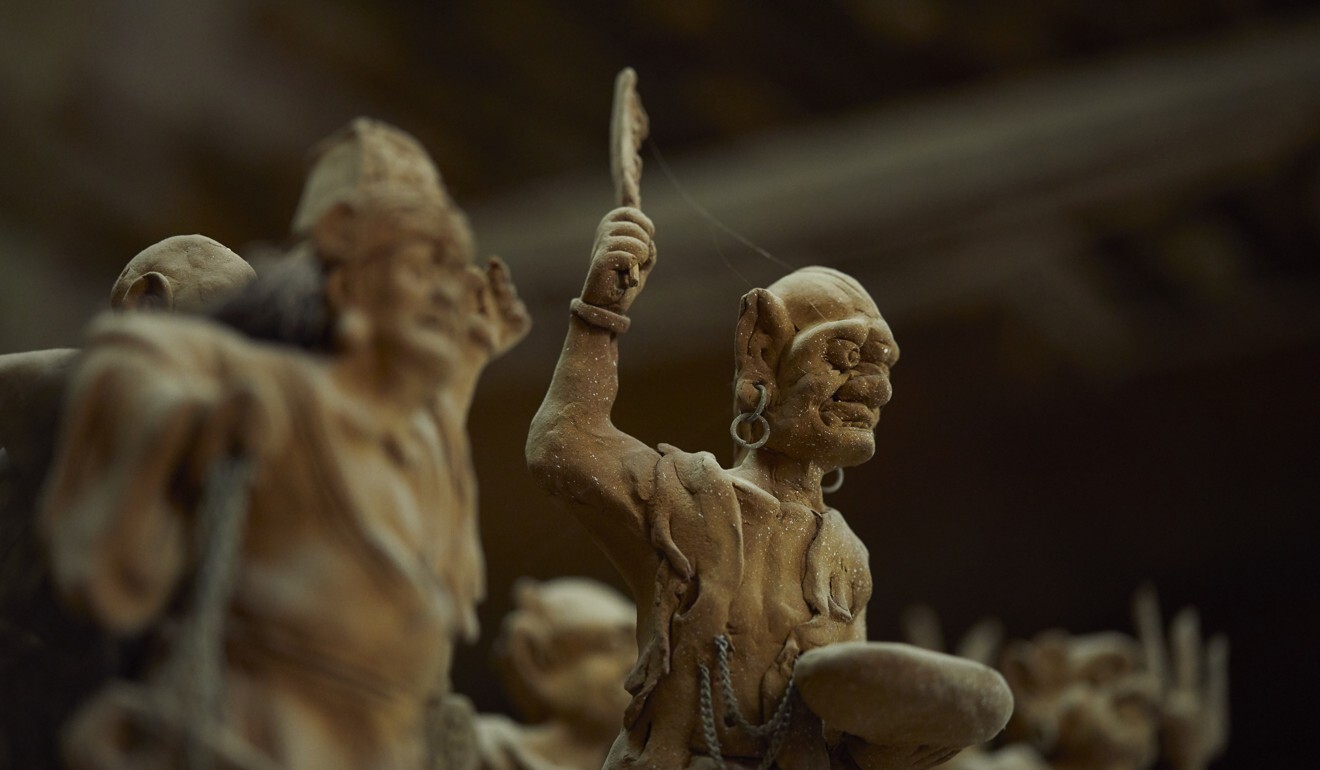
Tay has diversified by making customised figurines for tourists. Photo: Tay Guan Heng
“Making those joss sticks was a group effort, we had to mobilise everyone in the family. You can’t do it on your own,” says Tay, the sixth of nine children.
“So my dad and I would build the joss sticks, my youngest brother would carve the dragon, my second and third brothers would do the painting. We even roped in friends to help carry and deliver the joss sticks. That was the fun part.”
MORE THAN STICKS
Tay’s fondest memory of his childhood is growing up around the business with his big family. His father had taught him and his brothers the craft to keep them off the streets in Little India, where gang fights were rife back in the day.
Whenever it rained, the brothers would dash out of their shophouse (which served as both the Tays’ shop and living quarters) to save the joss sticks they had laid outside to dry. They even built a makeshift barbecue pit indoors to “grill” the sticks and dry them in time for the orders to be fulfilled.
But the family was dealt a blow in 1998, when the elder Tay died. To make things worse, official restrictions on the height and dimension of joss sticks that could be burned kicked in, sending revenue tumbling by 80 per cent.
“Everybody [in the industry] started to panic, and they stopped work. We didn’t know what to do. But it was either we try, or we give up. So we tried,” Tay says.
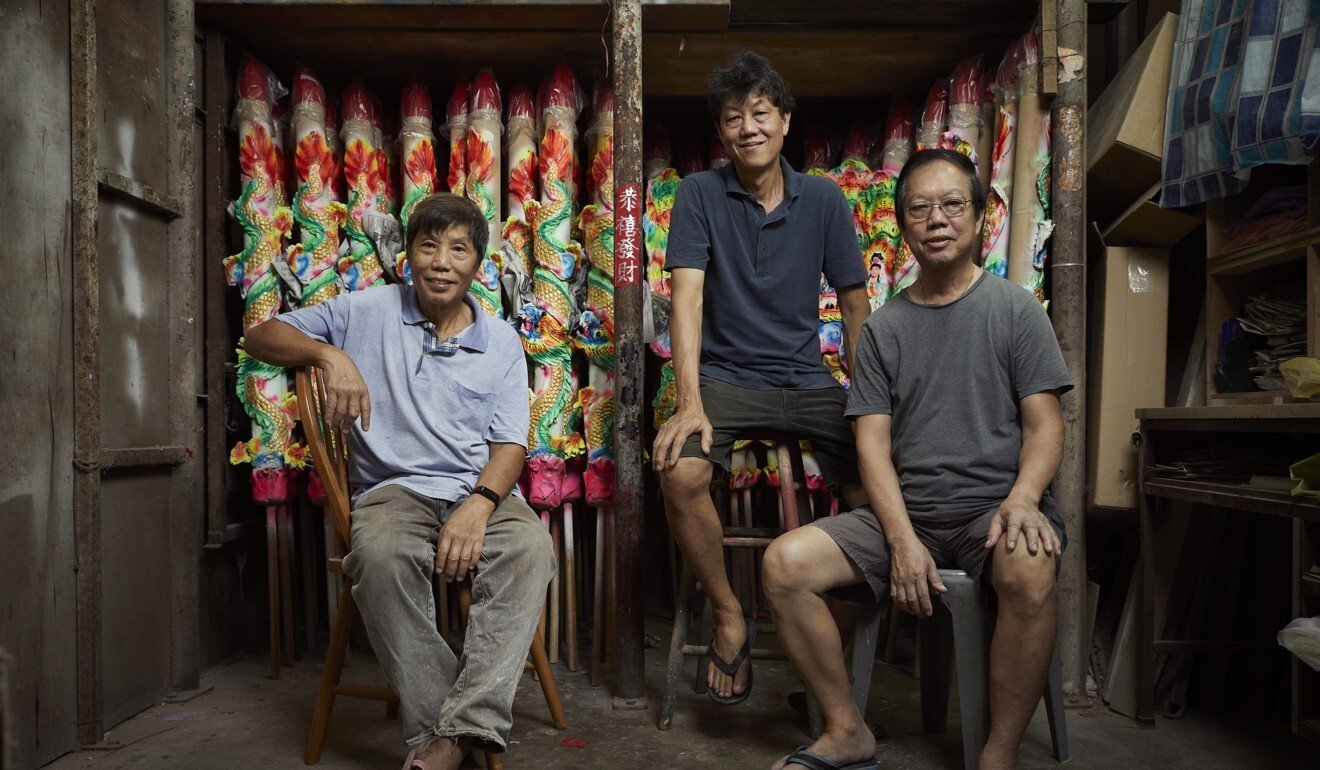
Albert Tay (centre) with his two brothers. Photo: Tay Guan Heng
Of the nine children, it was Tay, his fifth brother and his youngest brother who stepped up to take over the business. He had to learn the ropes of running the shop, from doing the accounts to handling day-to-day operations, and looking for new business ideas.
Tay Guan Heng took small steps to diversify. On top of the regular orders from temples and clan associations, it started to make customised figurines for foreign tourists – be it Chinese mythology gods and goddesses, nativity sets, or Star Wars characters – and held workshops in schools.
Tay’s youngest brother, Amos Tay, known for his workmanship, participated in cultural festivals and exhibitions, including the London Cultural Olympiad in 2014. He died in October 2019 from cancer at 58 years old, but had continued working and visiting the workshop even as his condition worsened because he felt comfortable there, Tay notes.
“This is a gathering place for everybody,” he says. “My brothers always drop by. But it would be very difficult if I didn’t have this shop. That’s why if this shop has to go, life will really change.”
Today, Tay Guan Heng faces a different set of challenges: dwindling demand, tightening regulations, a lack of space and manpower, and perhaps the hardest hit it has taken in recent times, the
.
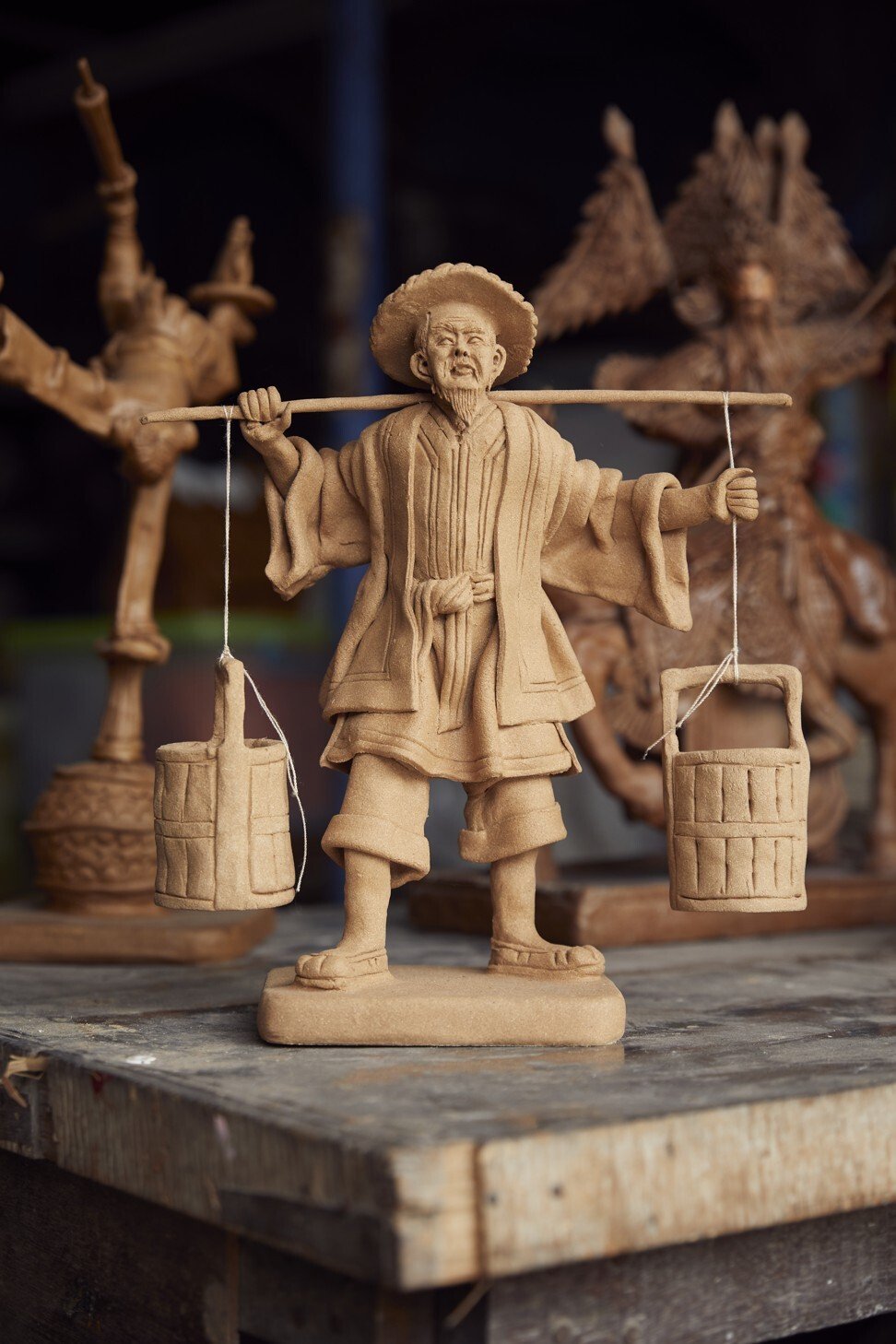
Tay has diversified by making customised figurines for tourists. Photo: Tay Guan Heng
The workshop has stopped running since Singapore introduced “circuit breaker” measures aimed at stemming the spread of the virus on April 7. These mandated that all non-essential businesses stop operations at their physical workplaces.
“Even before that, the temples were being shut and most celebrations halted. All our orders were cancelled, so totally zero business. We don’t know when this will end,” says Tay, who is preparing for demand to remain low even after the virus subsides, due to the economic downturn.
There are no plans for anyone to take over the business.
“Our age is catching up. I don’t know how long I can go on, but I would like to keep the shop going for as long as possible. We just have to do our best,” Tay says with a smile.
Outside the workshop, footsteps shuffle quickly as the sound of falling rain becomes louder and heavier. Tay leaps to his feet and rushes out to carry the giant joss sticks that were being sunned back into shelter, the same way he did in his younger days. ■











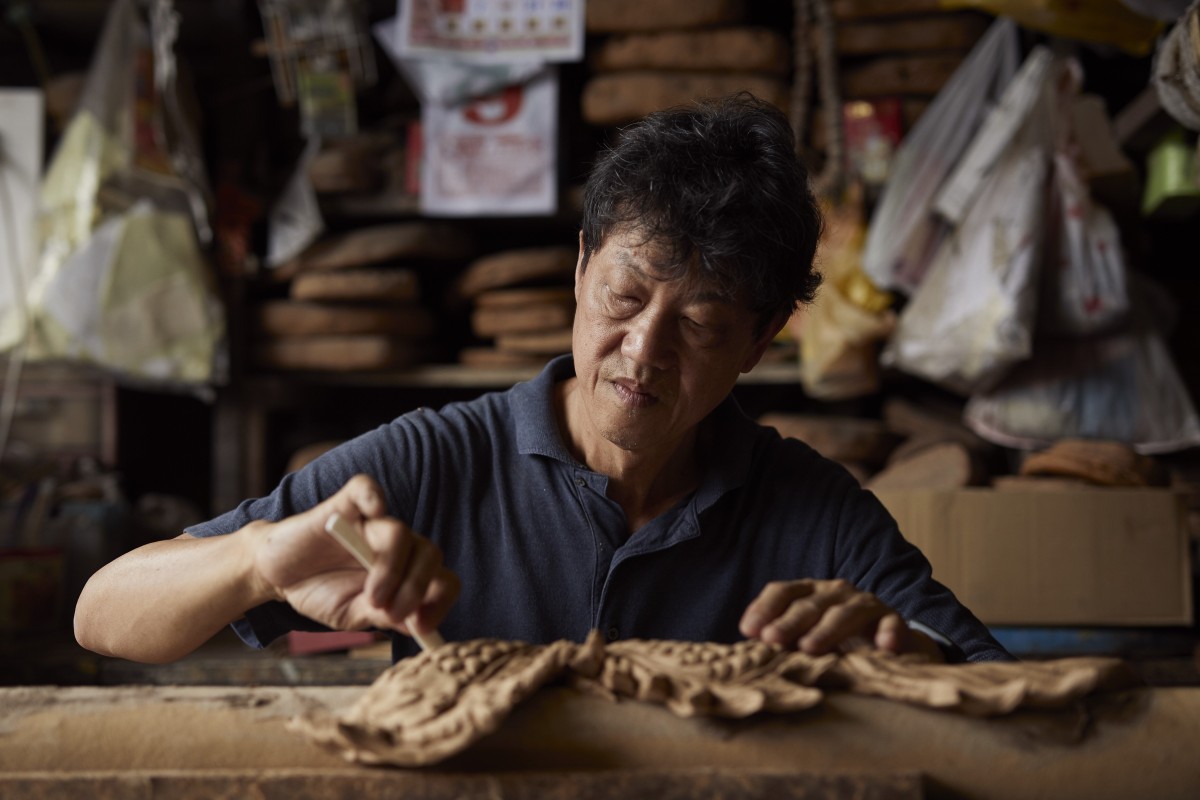


Comments